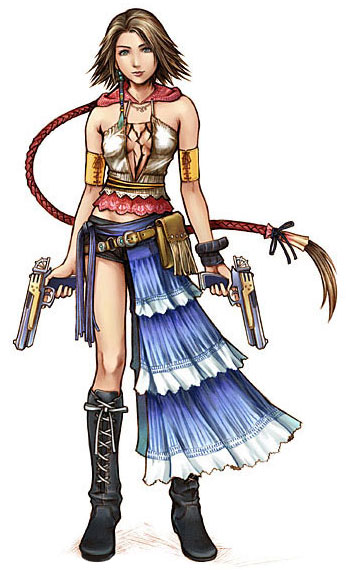thaluikhain said:
Eclectic Dreck said:
Even in cases where you find a female taking the lead the gender is largely irrelevant as they are symbolically male.
Yeah...no.
It's not a matter of them being symbolically male, it's that heroic virtues are associated with men because the default state for being a hero is male. You can't be a hero without being heroic, and heroism is defined in relation to being a man.
Now, there's no reason why this should be, and if male stopped being the default, it wouldn't be, but as it is it's not going anywhere.
I disagree. The problem is that the archetype being used in most cases is the heroic
male. There is a heroic
female archetype but, it should be noted, it is meaningfully different.
The example, in this case, keeps being Vin from Mistborn but lets play it slightly differently. If you took a character, say Aragorn from Lord of the Rings, and simply changed his gender and that of his love interest, what have you gained? The role is still
masculine. All you have done is have the part of heroic male
played by a female. More importantly, it undermines certain key conflicts inherent to the character. In a world where the female is marginalized in most roles (That's what makes Eomer stand out as a shield maiden after all) what conflict is produced by her not wanting to be Queen?
By contrast, take Maggie in Million Dollar Baby and swap her gender. Because
feminity is a core aspect of Maggie (being female and all), much of the conflict evaporates and indeed the core cited motivation for Frankie's actions at the start would need to change.
This is the key point: gender
can be important in the story being told. Indeed, it
should be important because it is a
defining characteristic as much as intellect, athletic ability, wit, gumption, or courage. Without exploring what makes that detail important in a world, it is irrelevant and meaningless. Mass Effect's female shepard isn't a heroic
female - she's just an archetypal
hero who happens to be female.
And, if you don't see why there is a distinction between those two points I don't know what else to say.
matthew_lane said:
Eclectic Dreck said:
My problem with this logic is that the choice of gender becomes meaningless
Thats because it is meaningless. As far as distinctions go, it is completely, 100% meaningless.
Here's a question: why do you think the choice of gender is meaningless? After all, gender is going to affect things like:
Probable Height and Weight Range
Reproductive goals
Neurological Chemistry
Neurological Configuration
Physiological responses to verbal and non-verbal queues
Social Status
Social Interactions
Fashion
Health and Hygeine
The list really could go on for a long while. Yes, you could point to anything on that list and say "but not necessarily" and you'd be right. But, as a rule, I don't think you'll find many supporters of the idea that male and female are
indistinguishable or that their lives are, on the whole,
interchangable. You might even go so far as to say that some entries on that list are wholly artificial constructs (the social status in particular) and, again, you are probably completely right. But, considering how human society has operated thus far, it is safe to say that males and females are very generally
different. Therefore, it is just as safe to assume that choice of gender of a character could
easily have an impact on the character.
Gender is only an
irrelevant detail if your story chooses to make it irrelevant.


